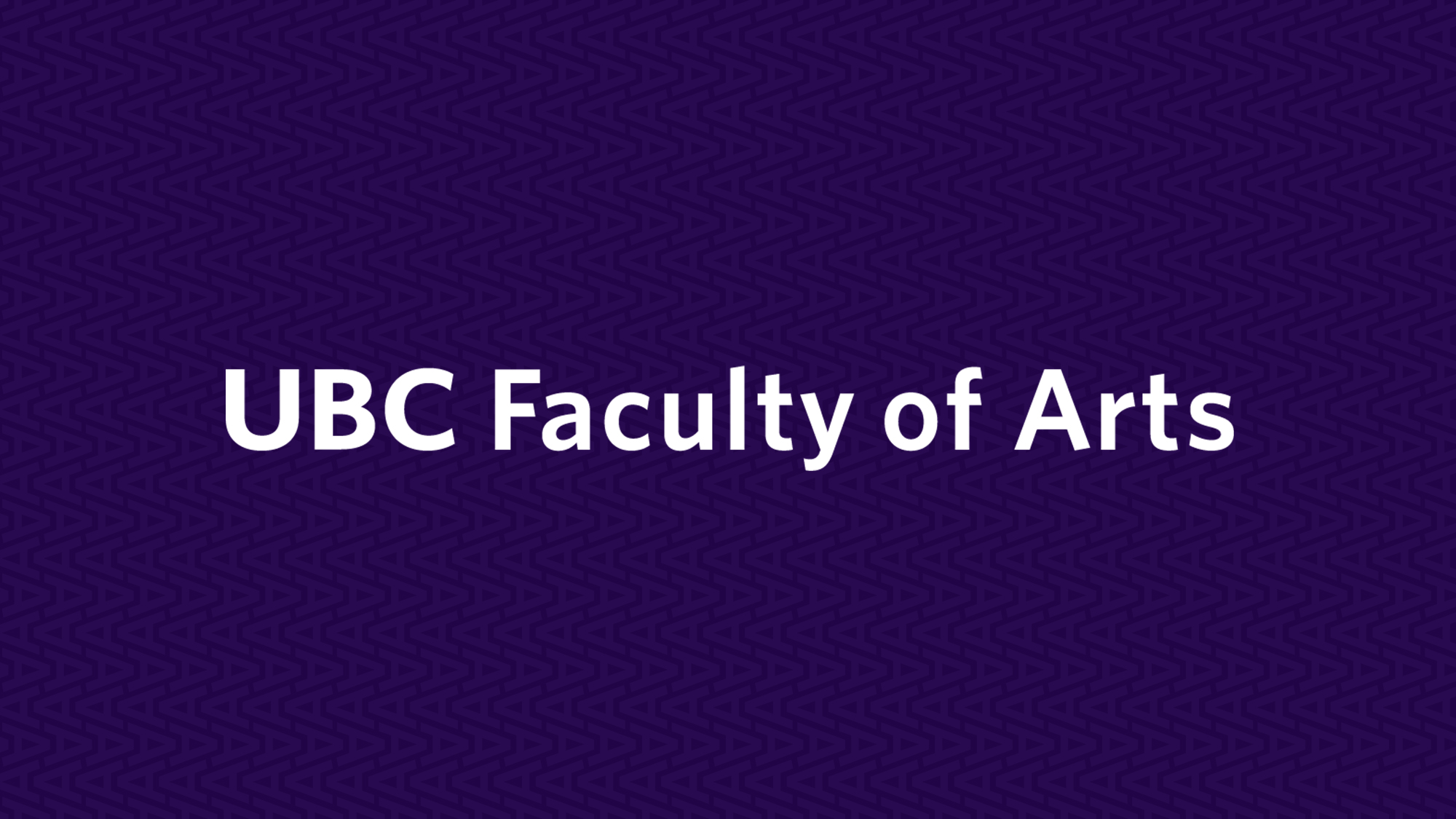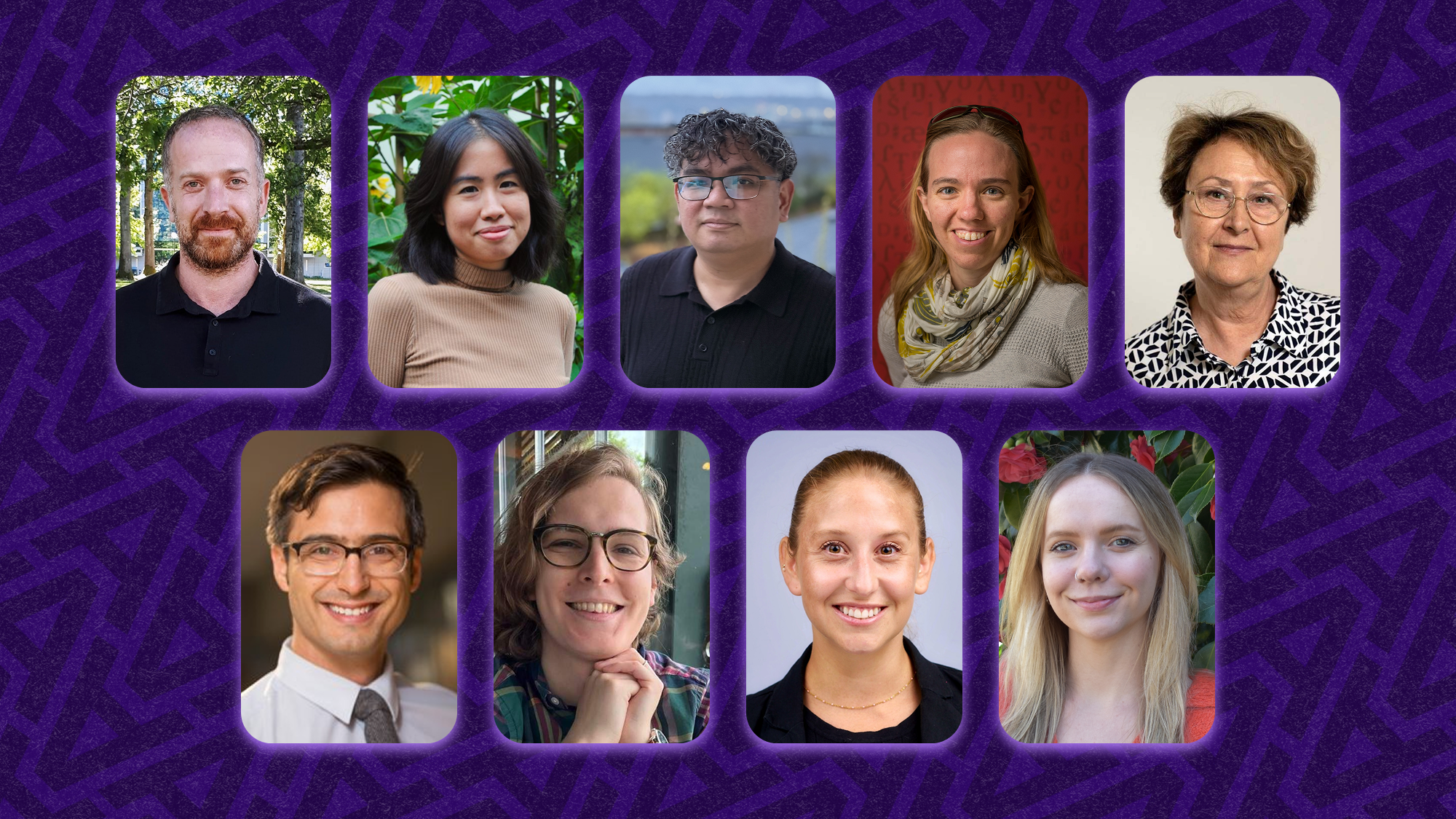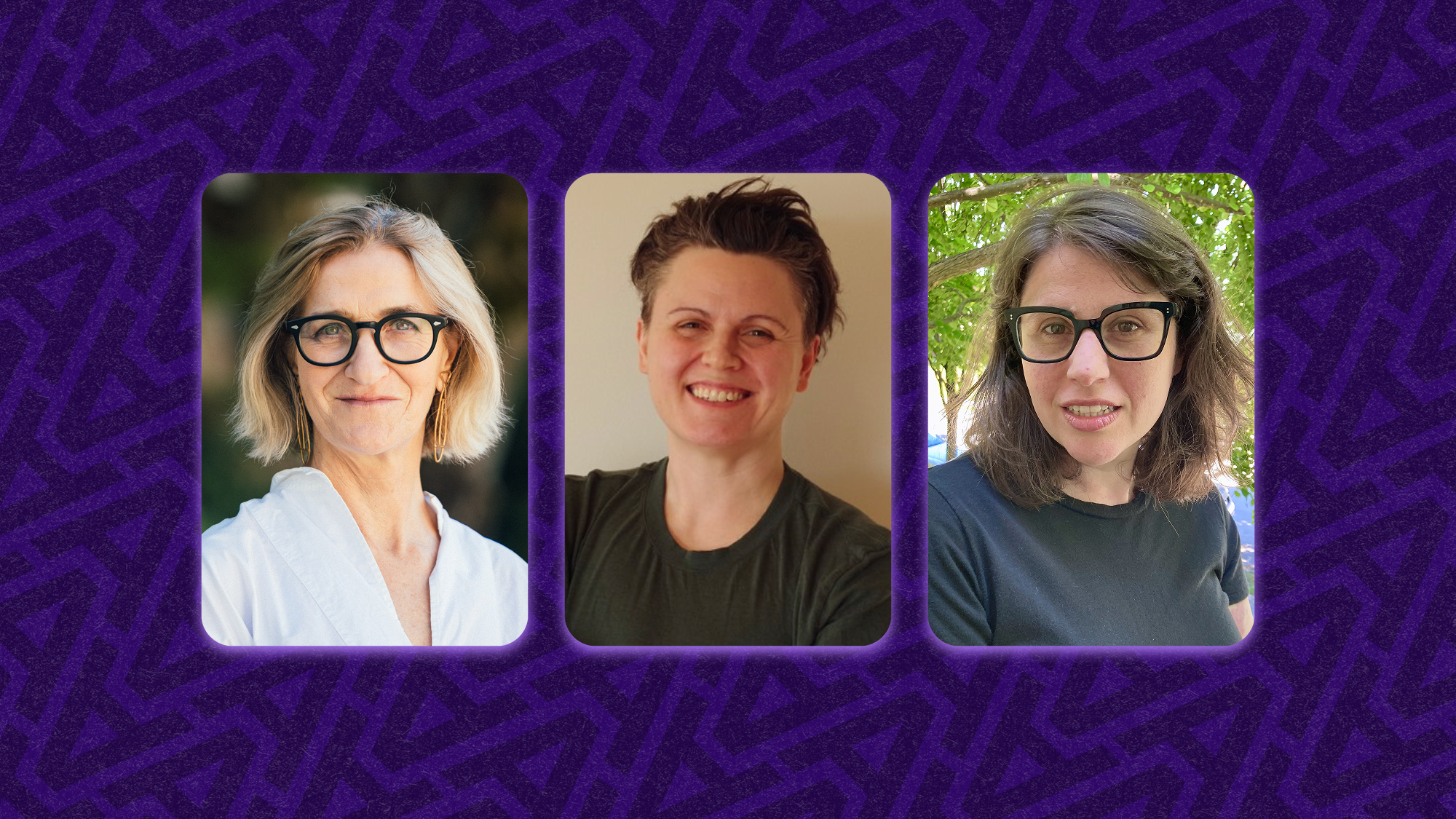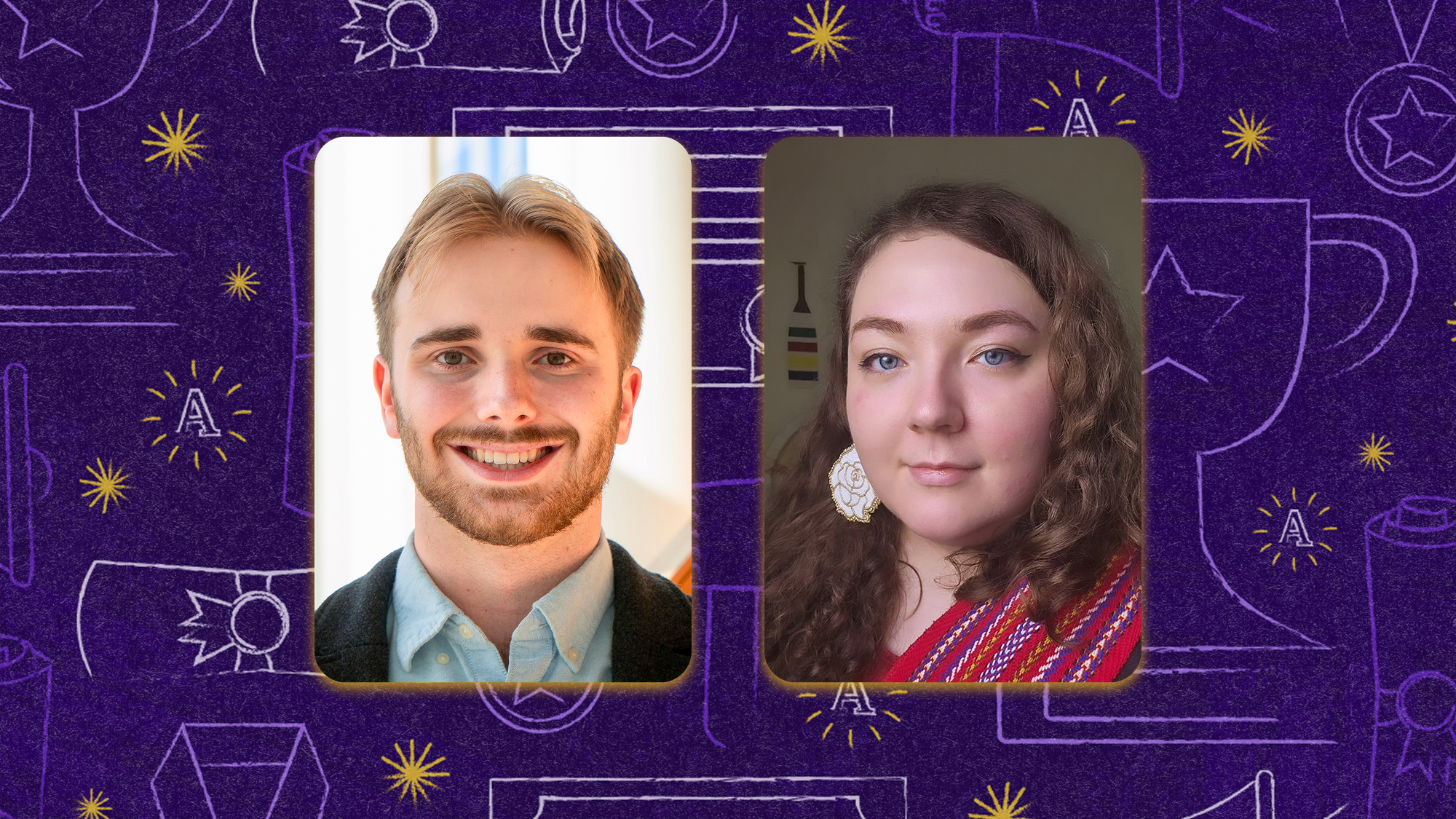

Kaden Anderson-Hancock and Faith Trottier are recipients of the 2025 Outstanding Leader in the UBC Community Award for their commitment to shaping positive communities and healthy campus cultures at UBC.


Kaden Anderson-Hancock, Honours in Political Science
Kaden has held numerous leadership roles, including President of both The FentaNil Project and the UBC Political Science Students’ Association. Through these roles, he has expanded harm reduction education, secured naloxone training for students, led policy and legal competitions, and supported dozens of academic, professional, and community-building initiatives.
Kaden also led a Student Directed Seminar on drug policy, worked as a Teaching Assistant for POLI 100, and supported crucial advocacy work through the AMS VP External Office.
What student leadership opportunity had the most impact on you during your time at UBC?
While I can’t pinpoint a single leadership opportunity as the most impactful, serving as Co-President of the UBC Political Science Students’ Association (PSSA) had monumental influence on my growth as a leader.
This role allowed me to work alongside the Political Science department, faculty, and my peers to enhance the undergraduate experience—not just academically, but socially and professionally as well. From overseeing the organization of policy and legal competitions to hosting networking nights and faculty-student events, I had the privilege of helping create a community beyond the classroom, where students could find mentorship, career opportunities, and meaningful connections.
What does it mean to be a great Arts leader?
To me, being an Arts student leader means dedicating time, energy, and loads of care to the communities that have allowed you to grow and become who you are today. A duty to leave spaces better than you found them requires a great level of leadership, one that student leaders must encompass.
Throughout my time at UBC, leadership didn’t come from titles or awards, it came from community. Whether it was organizing naloxone training during a toxic drug crisis, advocating for students with the AMS External office, or helping fellow Political Science students find connections through the PSSA, I’ve learned that leadership in the Arts is about relationship-building, collective care, and making systems more accessible.
What advice would you give to incoming UBC Arts students?
Say yes to opportunities, even when they scare you. Some of the most meaningful experiences I had at UBC started with stepping into the unknown—joining a club, applying for a leadership role, or reaching out to someone I admired. Immerse yourself fully in the community, take risks, and embrace the discomfort of growth. The friendships, skills, and confidence you gain along the way will define your university experience far more than any grade ever will.
Alongside this advice comes an important reminder: don’t stretch yourself too thin. You want to enjoy your undergraduate experience and take opportunities as they come, but make sure you have the bandwidth to take them on meaningfully. It’s okay to take things slow and to change your mind. I transferred to universities and switched programs, and I’m so grateful that I did.
What did you learn about yourself at UBC?
I learned that so many students are far more capable than they may initially believe. I was in this category. When I transferred to UBC, I never imagined myself becoming a club president, conducting political research for the student union, or co-facilitating a student-directed seminar. Over time, I realized that leadership in these impactful spaces doesn’t require innate talent—it requires passion, dedication, and a commitment to building and maintaining a community. Meaningful leadership comes from those willing to learn, adapt, and advocate for the communities and people they care about.
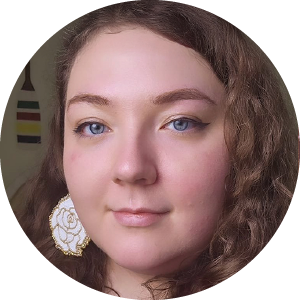

Faith Trottier, Psychology
After serving in multiple roles with the UBC Indigenous Committee, Faith played a central role in establishing the Indigenous Student Society—the first Indigenous Constituency recognized by the AMS. As the society’s first President, she helped create its constitution, led campus-wide consultations, and ensured it would serve Indigenous students across disciplines and year levels.
Faith has also worked with the Métis Nation of British Columbia, presented at the Psychology undergraduate conference, and launched a digital community connecting Indigenous students across Canada.
What student leadership opportunity had the most impact on you during your time at UBC?
The most profound leadership position I’ve had was being the President of the Indigenous Student Society (ISS). I worked together with an incredible group of Indigenous Leaders to create one of the first Indigenous Constituencies in Canada. I am honoured to be surrounded by so many Indigenous change makers. Sitting in the ISS lounge with my fellow Indigenous kin beading and laughing truly gave me comfort and a home. I am honoured to have been sitting in circles with so many different Indigenous nations and cultures. Words cannot express my gratitude for having such a space on campus and I cannot wait to see what comes of the legacy myself and other ISS leaders have created for the incoming UBC Indigenous students. I hope to come back and see our powwow become an annual tradition.
What does it mean to be a great Arts leader?
To me, being a great Arts student leader means creating lasting change, uplifting others, and using my platform to advocate for equity and community wellbeing.
Being one of the founders, and the President of the Indigenous Student Society, I have learned that leadership is about building spaces that foster connection for future generations. It is about hard work and caring for one another. To be a leader, you must be surrounded by community members to help lift one another. It takes a community to make a leader.
What advice would you give to incoming UBC Arts students?
Find your community early—whether through the Indigenous Student Society, clubs, or research—as it will make UBC feel more like home. Take up space and share your voice in class, leadership, and research because your perspective is valuable. Get involved beyond coursework—student governance, research, and community initiatives will shape your experience just as much as academics. Most importantly, stay open to change—your path may shift, but embracing new experiences will lead you to unexpected and rewarding opportunities.
What did you learn about yourself at UBC?
UBC has allowed me to explore myself in ways I cannot express. As a previous child in care, and as a recipient of intergenerational trauma, I have had a lot of learning to do. I explored the many questions I had about myself through so many different ways. I explored Indigenous psychological research – what that looks like in comparison to western approaches. I learned that my voice and my culture can be valuable and seen in academia. I learned that I am a community-based researcher. I also explored questions about my life, understanding the impacts of intergenerational trauma and seeing where my voice and strength is needed. I learned to turn my anger into something productive, to make change for future generations. And most importantly, I learned that I am capable. As a high school dropout and as an Indigenous person, I have been faced with a lot of systemic injustices. However, I have asked these harsh questions of “why” and now I know where and what needs to change for generational healing and excellence.
